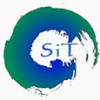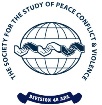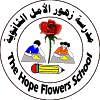
|
|
Member Organisations
Currently INPsySR has 10 member organisations:
- Psychologists for Social Responsibility (PsySR)
- Finnish Psychologists for Social Responsibility (FiPSR)
- German Forum Peace Psychology (FFP)
- Systems in Transition (SIT)
- Psychologists for Peace (PFP)
- People's Vigilance Committee on Human Rights (PVCHR)
- Costa Rican Liberation Psychology Collective
- Italian Society for Psycho-Social Sciences for Peace (SISPa)
- Society for the Study of Peace, Conflict, and Violence (APA Division 48)
- Hope Flowers School (HFS) and Center for Education and Community Development (HFC)
Eligible for membership are organisations of which the aims, statutes, and rules are in accord with the aims of the Network. Organisations can apply for membership using the application form which is available for download here [PDF].
- Psychologists for Social Responsibility (PsySR) [website] [contact e-mail]
- Finnish Psychologists for Social Responsibility (FiPSR) [website] [contact e-mail]
- FiPSR is preparing seminars, symposia, discussions, exhibitions, festivals and other activities to raise awareness on issues related to peace psychology and social responsibility. FiPSR is also actively engaged in promoting these topics in national media. Any income form these activities are used for development projects.
- FiPSR is participating in developing and accrediting the Medical Peace Work online course for humanitarian workers.
- FiPSR also runs three development projects with funding from the Finnish Ministry of Foreign affairs: (1) FiPSR supports the National Institution of Social Care and Vocational Training (NISCVT) or Beit Atfal Assumoud (BAS) to help the Palestinian refugee children and families s well as poor Lebanese families, with a particular focus on mental health issues. (2) FiPSR also supports the Palestinian Medical Relief Society (PMRS) in creating a psychosocial model for helping victims of military violence, trauma and stress and reduce their harmful effects on the mental health of Palestinians. Together with FiPSR, PMRS provides training and education, counselling and support through a Women's Health Program, Community Health Centers, Community Based Rehabilitation Program, Youth Centers and the Mobile Clinic Teams. (3) FiPSR also supports the People's Education, Assistance & Counselling for Empowerment (PEACE) in Windhoek, Namibia, in their work with victims of violence and traumatic situations at their rehabilitation centre and outreach activities.
- German Forum Peace Psychology (FFP) [website] [contact e-mail]
- Systems in Transition (SIT) [website] [contact e-mail]
- Psychologists for Peace (PFP) [website] [contact e-mail]
- People's Vigilance Committee on Human Rights (PVCHR) [website] [contact e-mail]
- Costa Rican Liberation Psychology Collective [website] [contact e-mail]
- Italian Society for Psycho-Social Sciences for Peace (SISPa) [website] [contact e-mail]
- Society for the Study of Peace, Conflict, and Violence (APA Division 48) [website] [contact e-mail]
- Hope Flowers School (HFS) and Center for Education and Community Development (HFC) [website] [contact e-mail]
|
PsySR is an independent, non-profit organization that applies psychological knowledge and skills to build cultures of peace with justice. Our members are psychologists, students, and other social justice advocates in the U.S. and around the world. Founded over 25 years ago, PsySR develops and promotes resources for creative, non-violent, participatory approaches to the most pressing social issues of our time. |
 |
|
FiPSR was founded in 1982 by the Finnish Psychological Association, the Finnish Psychological Society and the Finnish Psychology Students' Association. It is based in Helsinki, Finland. The aim of FiPSR is to promote the universal right to mental and social well-being of all people and encourage people of all professions to work for this aim. |
 |
|
FPP was founded in 1982 in connection with the discussion concerning the armament of NATO with Pershing 2 and cruise missiles. Currently, FFP has approx. 90 members. The activities of FFP involve primarily: organization of an annual conference; publication of books and scientific articles; editing of journals; participation in the publication of the interdisciplinary journal "Wissenschaft und Frieden"; dissemination of psychological knowledge through public talks; and public statements on political topics related to peace. The FFP also awards the annual Gert Sommer Award for Peace Psychology for peace psychological dissertations and maintains a mailing list for exchanging information and debate. |
 |
|
SIT is an organization of mental health professionals and social scientists from European post communist countries and western Europe focusing on the psychosocial effects of rapid social change. SIT was started in 1991 primarily by psychologists and family therapists. The group was formed to communicate about common and differing problems and solutions in a psychological, therapeutic and psycho-social context. SIT has evolved into being primarily a four day annual international working meeting around a theme of common interest with a reader contributed to by members and an editorial committee, guest speakers, plenaries and small groups. A newsletter keeps members informed during the year, and in numerous "partnerships" members teach and consult with each other's local places of work during the year. |
 |
|
PFP is an Interest Group of the Australian Psychological Society (APS). Its members and supporters are psychologists, and others, who are concerned about war and conflict in our world and are interested in applying their professional skills to issues relating to promoting peace and preventing war. State branches function autonomously to promote local initiatives, and a small national executive assists in coordination, liason with the Australian Psychological Society, distribution of a national newsletter, and organisation of national initiatives. PFP aims to encourage the study of issues related to the promotion of peace and prevention of war; acquire and disseminate knowledge about psychological issues related to war and conflict; advocate and promote the use of peaceful rather than violent methods for the resolution of conflict; and liaise with other professional groups whose aims are congruent with those of PFP and in accordance with those of the APS. PFP's pratical work relates to the following areas of activity: education; Peace Research Award; research; educational posters and children's books; advocacy; Children's Peace Literature Award; Year 11 Peace Art Award; peace pods; encouraging microfinancing; recognising peace workers' contributions; and liasing with other groups. |
 |
|
PVCHR was started in 1996 as a membership based human rights movement in Varanasi (Uttar Pradesh), India. The organization is working to eliminate the violation of basic human rights, and to establish "a people friendly society through an inter-institutional approach. PVCHR aims to establish a true, vibrant and fully entrenched democratic society through Jan Mitra concept where there shall be no violation of civil rights granted to a citizen by the state. In addition PVCHR aims to provide basic rights to all, to eliminate situations that give rise to exploitation of vulnerable and marginalized groups and to start a movement for a people friendly society (Jan Mitra Samaj) through an inter-institutional approach. PVCHR is working on the grass-root level in 45 villages in Uttar Pradesh. In close cooperation with local human rights activists PVCHR documents cases of severe human rights violations in the villages, for example cases of malnutrition and starvation, police torture or unavailable medical treatment. Especially in cases of custodial torture PVCHR is also providing legal aid. |
 |
|
The Costa Rican Liberation Psychology Collective is an independent, non-profit organization founded in October 2008 by a group of psychologists and students, and stems from the previous efforts carried out by the Costa Rican Liberation Psychology Network. The Collective promotes joint efforts with communities and groups that promote social change. It also promotes research, public debates and scientific and academic endeavors related to social change and the struggle for justice and human rights, and organizes seminars and other educational experiences in its fields of expertise. The Collective holds national and regional conferences and is active against attempts to militarize the Costa Rican police forces, against xenophobia against Nicaraguans, against the occupation of Costa Rican territory and ports by U.S. armed forces, and against the criminalization of social protest in Costa Rica and neighbouring countries such as Honduras and Panama. The Collective also publishes a bulletin (in Spanish) that can be downloaded from the website. |
 |
|
SISPa (Società Italiana di Scienze Psicosociali per la Pace) has recently redefined its internal structure and restarted its activities with the aim to give more emphasis to the links between research and project activities. SISPa publishes an online newsletter which is read by practicioners and academics. SISPa's recent efforts have been directed at creating a network with local stakeholders. With this overall purpose it submitted a project to the Veneto region, in collaboration with the Department of Applied Psychology of the University of Padova and with Centro CAPTA (a local association), aimed at developing practices of cultural mediation in prisons. Even if the political context is not favorable, several initiatives on peace research are currently developing in Italy, with this regard we notice that interaction between practitioners and scholars are greatly needed. Another interest of SISPa is in connecting local and international experiences to identify overall transformation processes that affect our societies. |
 |
|
The Society for the Study of Peace, Conflict, and Violence is also the Division of Peace Psychology (Division 48), established within the American Psychological Association (APA) in 1990. It is a growing organization consisting of psychologists, students, and professional affiliates from diverse disciplines. The purpose of the division is to increase and apply psychological knowledge in the pursuit of peace. Peace here is defined broadly to include both the absence of war and the creation of positive social conditions which minimize destructive conflicts and promote human well-being. |
 |
|
The Hope Flowers School was founded to develop attitudes and skills that foster peaceful resolutions to conflict. The school seeks to cultivate positive values within Palestinian society and build relationships between Palestinian children and other cultures as a basis for creating understanding and peaceful relations among the peoples of the world. In 2004 the Hope Flowers Centre (HFC) for Education & Community Development was established as a means for: promoting the growth and development of community by giving it access to the experience, expertise, facilities, and services available at the HFS; and strengthening and growing the HFS through its involvement with the community. HFC seeks to reach its goals by providing the following six services/ programs: educational development programs; disabilities & Special Education programs; psycho-social programs (training and counseling); women empowerment programs; economic development programs; and youth development programs. By providing these services, the centre helps to develop, grow and strengthen of all sectors of the community. |
 |